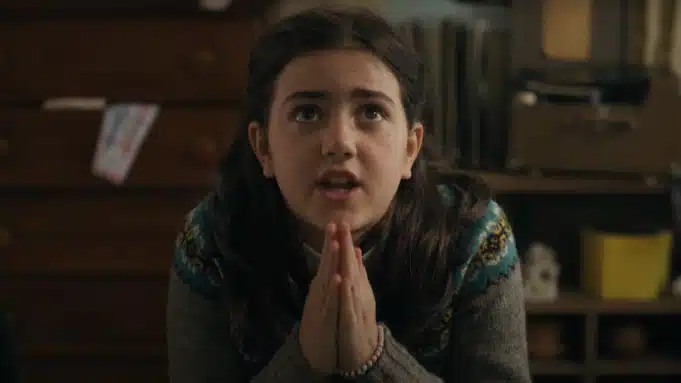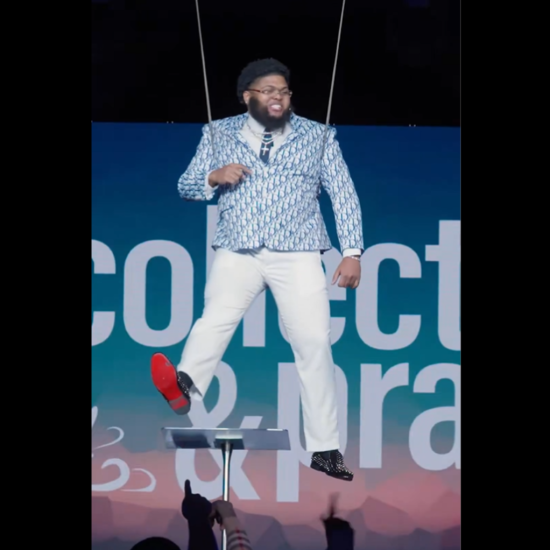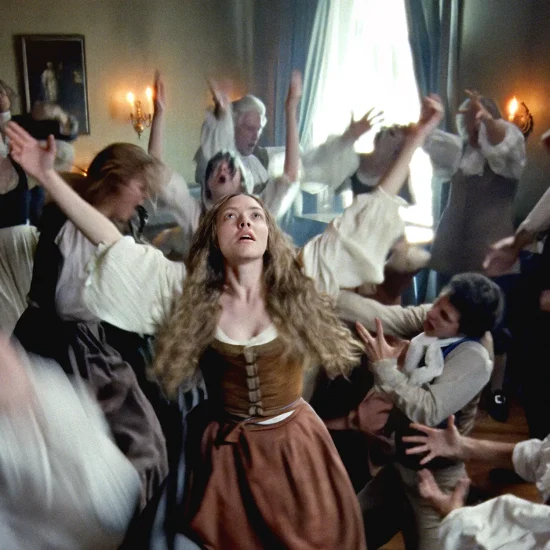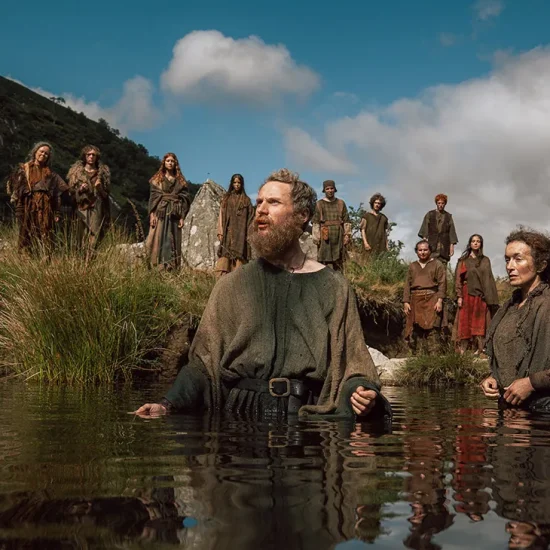
When I was about 15 years old, I had a beautiful encounter with Jesus at summer camp. I was deep into a troubled adolescence, plagued by anxiety, insomnia, and depression. As a pastor’s kid, I was also very cynical and highly resistant to Jesus’s pursuit of my heart. I didn’t see him as a friend or parent, as much as another adult trying to run my life. But one summer night, I let down my guard and let myself feel the unfailing love of God. It changed me.

Juliet Vedral
I suddenly found myself longing to sing songs to God all the time. I would hide in my bedroom and sing worship songs to God most evenings after my homework was done. That sweet, innocent period lasted for about a year before “being a Christian” began to replace my simple, childlike love for Jesus. By that I mean, the “discipleship” I was being offered felt more like a specific cultural identity to embrace. My relationship with Jesus became filtered through a set of expectations and practices handed to me by the very well-meaning adults in my life. It didn’t take long for the cynicism to come creeping back.
A few years later, I gave up entirely and declared myself agnostic after seriously considering a conversion to Judaism. It would take another half-decade before I let myself revisit a relationship with Jesus. But I never resumed the sweet, private praise to Jesus of my youth. It felt too foolish and childish.
And then earlier this year I experienced a traumatic and life-threatening miscarriage. In the midst of my grief and the pain of loss and physical injuries, I felt this call once again to sing songs to Jesus. The pure wonder I’d once experienced as a teenager came roaring back. Though I was still weighed down with the realities and tragedies of adulthood, I felt like a child again, once more experiencing the joy of my salvation. It made me wonder if that call had always been there, but I had just let my head drown out the sound of my heart.
I hadn’t made the connection between the intense call to worship in my youth and this recent urge to praise in my middle-age, until, weirdly enough, I screened Kelly Fremon Craig’s film adaptation of Judy Blume’s Are You There God? It’s Me, Margaret.

Lionsgate
For those of you who didn’t read the book a bajillion times in your adolescent years, Are You There God? It’s Me Margaret is the coming-of-age story of a young girl living in early 1970s New Jersey. Margaret Simon is the daughter of a Jewish father and a Christian mother, neither of whom practices their faith. When the book begins, her family moves from New York City to suburban New Jersey before the start of sixth grade.
This story centers on Margaret’s burgeoning adolescence, as she navigates friendships, social pressure, her not-yet-changing body, and her quest to find religion in this new environment. The film accomplishes the rare feat of bringing to life a beloved and formative book. It captures all of the novel’s excellent exploration of puberty — from Margaret and her friends pumping their arms and chanting “I must, I must, I must increase my bust” to her and Janie furtively buying (beltless) maxi-pads. But the film truly shines when it brings to life Margaret’s search for the divine.
“Her spiritual journey is really the reason I wanted to make the film,” Craig told me. “When I read the last page … I found her search for something greater to be so simple and yet profound … I also related deeply because that is the age that I started to ask, ‘Is there anybody up there?’”
Margaret chooses religion as her independent study project and explores Judaism, mainline Protestantism, the Black church, and Roman Catholicism. But it’s in the quiet of her childhood bedroom that she actually encounters the divine. Margaret has a prayer life, one that would be recognizable to most Christians. In “everything by prayer and supplication with thanksgiving” Margaret lets her “requests be made known to God.” She sees God as a refuge and help and she seeks God out.
Craig shared that as an adolescent, she also related to not finding God in a pew. “That’s not where I felt the Divine. I felt it in other places. I did feel it alone in my room. I felt it writing. I felt it in nature, and I thought it was so beautiful to track that exploration and also her own honesty about her faith and her own honesty about where she feels connected to something larger.”
By the end of the movie, we see Margaret maturing into her own person. She throws off her friends’ peer pressure and chooses to embrace both being an outsider and her feelings for a neighborhood boy. We also see her fervent prayers to not be left behind answered when she gets her period for the first time. Margaret is angry at God for the last third of the movie because she cannot find God in any of the religious traditions she’s explored. But it’s in this moment of entering womanhood that Margaret is able to return to her childlike faith. Instead of disconnecting Margaret from her childhood wonder, her coming-of-age creates room for a divine connection.
In Matthew’s gospel, Jesus says that we can’t enter the kingdom of heaven unless we have the faith of a child. In our hurry to “grow up” in faith, we often leave behind our wonder and imagination as we learn more of the systems and mechanics of what it means to be a Christian. Maturing in faith (and life) involves learning that a means is not an end.
A means to God — corporate worship, Bible studies, devotionals, retreats, etc. — is not an end unto itself. Discipleship is not an end in itself, it’s a means to help us become more like Jesus in a world desperate for him. Even singing songs in my grief is only helpful if it allows me to connect more fully with our living, wondrous God. As St. Augustine wrote, “Our hearts are restless till they find rest in Thee.” Not in the means, but the (Beginning and the) End.
Indeed, the kingdom of heaven is always near, but the tragedies and realities of this life can make it hard to grasp. The structures and traditions of religious practice can sometimes make it difficult to embrace the wild wonder of the Divine. Our heads too often get in the way of our hearts. But let us learn the lesson of Margaret Simon and listen for the still, small voice calling out to us, “Are you there? It’s me, God.”
Juliet Vedral is a writer, toddler-and-baby-wrangler, and amateur shoe collector. She is the co-founder and editor of The Wheelhouse Review. Her writing has also appeared in Sojourners and Radiant. A native New Yorker, Juliet currently resides in Alexandria, VA, which is still a weird thing for her to say.






